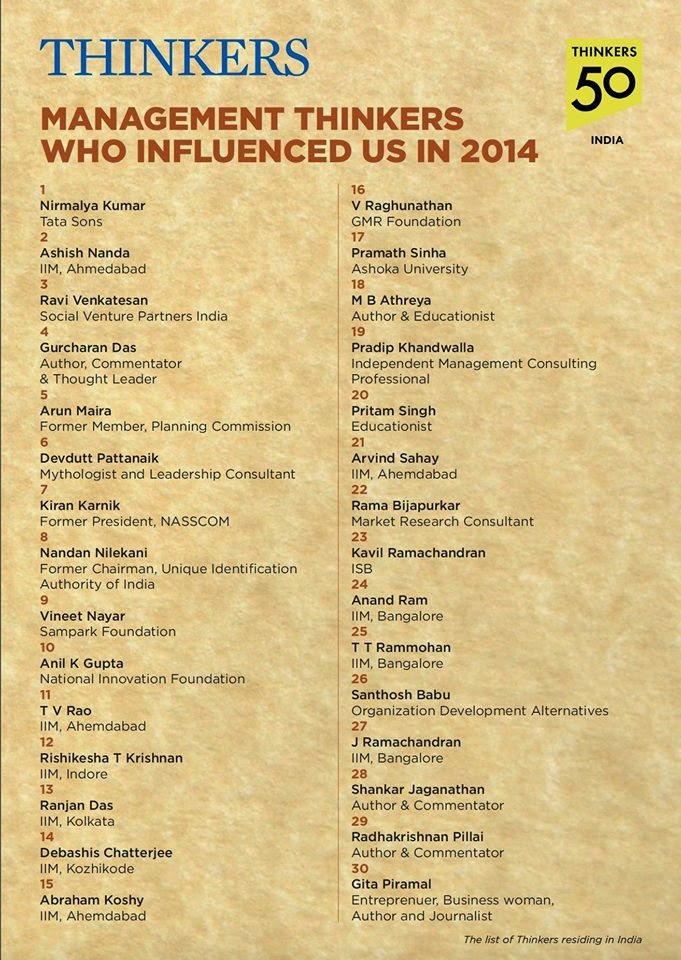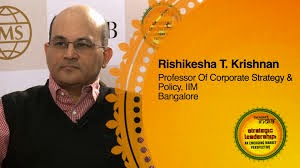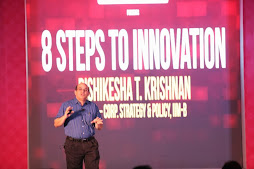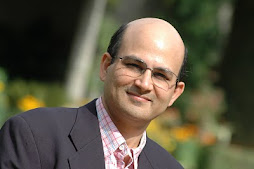I
first learnt about Dr Mathai Joseph (MJ) some 7 or 8 years ago. An article he
had written on the nature of innovation in the IT industry popped up during an
internet search. From what I remember of this article, he had argued that
innovation in the software services industry was application and
customer-oriented and therefore not like conventional R & D. At that time MJ
was the director of the Tata Research Design and Development Centre (TRDDC) at
Pune and I could sense from the article that he had more than the average IT
company manager's insight into the dynamics of innovation.
Once
the book arrived, a part of the mystery was solved. "History and
Memoir" is the second sub-title of the book, at the bottom of the cover,
just above the author's name. MJ got into computer science somewhat by
accident, it appears, after he completed his MSc in Physics in Bombay and entered
a newly-founded programme at Cardiff. The enthusiasm of the faculty there
rubbed off on him, and by the time he finished this Masters course, he wanted
to learn more. He was admitted to a PhD programme at Cambridge where he worked
with some giants in the then fledgling field.
I
found the section where he describes how his supervisor allowed him to find his
own feet and interests, and yet guided him gently to enhance the rigour of his
work a wonderful lesson in socialization into the research process. This
section also brings out how the pioneers of computer science and engineering
strove to shape their discipline into a more scientific one. This would be
useful reading for any research-inclined computer scientist even today.
TIFR and Warwick
After
completing his PhD, MJ moved back to India to work at TIFR. MJ harbours mixed
feelings of this period - pride from some significant achievements, but also
rancour from the refusal of the "pure" scientists at TIFR to give
computer science its due. This dissatisfaction ultimately led MJ to seek
greener pastures at Warwick University. He clearly enjoyed his time there even
though he now had to teach large classes and contend with the university
bureaucracy. I didn't, however, get a sense of what was distinctive about
Warwick - in engineering and management it is known for its strong application
orientation and corporate relationships but I couldn't make out whether this
held true for computer science.
TRDDC
After
a decade at Warwick, MJ returned to India to head the TRDDC which was being
seen as an important R&D backbone of TCS. Over the years, several prominent
Indian researchers have made TRDDC their home - EC Subbarao, doyen of Indian
materials science is one, Keshav Nori, a prominent computer scientist is
another. MJ's account suggests that his role was to bring more focus to its
activities, and in particular to align it with the business of TCS. He also
enhanced the research depth. But I was hoping to learn more from this book
about what TRDDC really does, and what it should be doing in the future. I was
disappointed by a lack of in-depth discussion of this.
In
fact this leads to my major grouse about this book. It’s long on charming
memories of MJ's life, but short on details related to the book's title. MJ is
a good raconteur and I can see that his interest in poetry and literature right
from his college days have had a positive impact on his ability to tell a good
story. But his observations on the IT industry in India provide few fresh
insights. India's failure to understand the true potential of computers;
restrictive policies on imports; and waking up late to the importance of
software - all of these have been documented extensively and well elsewhere.
An Open Appeal to Dr. Mathai Joseph
I
really hope that MJ puts his powerful mind and pen to address what should be
done to enhance research and development in computer science and information
technology across academia, industry and government in India. With his unique
set of experience at TIFR, Warwick and TRDDC/TCS, I can't think of anyone more
qualified to do so.

















Interesting. Good to know about this book.
ReplyDelete